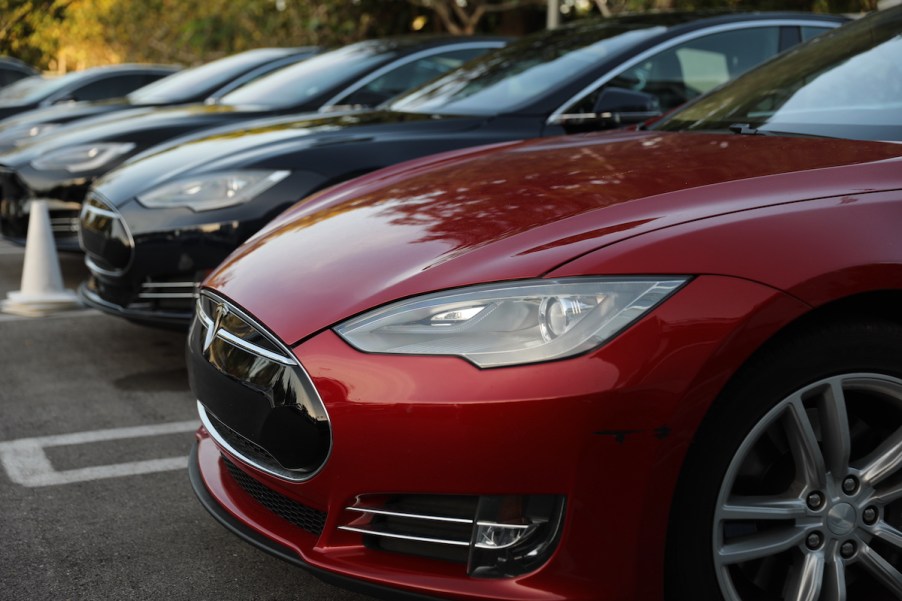
Do Electric Cars Last Longer Than Gas Cars?
Due to climate change concerns and other factors, more automakers are shifting toward EV production. Several have pledged to go all-electric by 2030, and we might see only electric Jaguar models come 2025. Dodge even announced its all-new eMuscle would dethrone the beloved Charger and Challenger.
It appears gas cars will eventually go extinct, which has led to plenty of questions. Are EVs self-sustaining enough to last longer than the cars we’ve been driving for decades? Though EVs are easier to maintain in some aspects, they also come with their own unique problems.
How many miles can an EV last?

As is the case with any vehicle, a car’s lifespan depends on how well you take care of it throughout the years. Gas cars and EVs should have regular tire rotations, brake fluid refills, new windshield wipers, car washes, and so on. However, according to Autotrader, an EV doesn’t have nearly as many expensive parts to replace.
A gas car’s engine and transmission are arguably its most important components. Though it’s not too difficult to make both last a long time, they can deteriorate faster owing to several factors. Regularly driving too fast can strain the engine, as can not supplying it with enough oil or coolant.
Both the engine and transmission are also made up of smaller components, such as camshafts and head gaskets, which can fail prematurely. If you need a completely new engine, you’re looking at least $3,000 for the average four-cylinder. Add a new transmission, and you might be better off purchasing a used car.
This is the main reason why Autotrader says electric cars typically last longer than vehicles with gas engines. There are fewer maintenance appointments to worry about, and EVs don’t have engines or multi-speed transmissions, so they don’t have problems with those parts. In addition to saving money on repairs, you won’t have to deal with rising fuel prices if you drove an electric vehicle.
What is the most expensive repair for an EV?
Autotrader also says that an electric car’s most expensive repair by far is fixing the battery. Like batteries in gas cars, EVs’ batteries eventually deteriorate because of extended use. But unlike batteries in gas cars, EV batteries typically cost at least $5,000.
However, the good news is that an EV battery lasts 10 years on average before needing a replacement. Many vehicles with gas engines can run up to 200,000 miles, which is more than 10 years if they’re driven an annual average of 12,000 to 15,000 miles. However, that’s also assuming no engine component fails over time, which is unlikely.
The average EV battery warranty is also generous at eight years. Mile allowances vary, but Tesla offers the best coverage with unlimited miles.
The drawbacks to owning an electric vehicle
In addition to requiring expensive batteries, today’s electric cars run into repair problems after collisions. EVs are still relatively new to the market, so finding replacement body and battery housing parts can be difficult. Additionally, EVs typically have more expensive technology (such as Tesla’s Autopilot) that requires more expertise to repair.
Also, charging infrastructure is a huge hurdle for many drivers. Though many cities and suburbs offer EV charging stations, rural areas are largely neglected by comparison. The convenience of a home charging station is nice, but it’s not always an option for renters.
Plus, the resale outlook for EVs still isn’t that great. Buyers prefer to stick with what they know, and a looming battery replacement bill doesn’t encourage them. Of course, as electric vehicles slowly gain more popularity, many drivers will likely begin valuing longevity over price.


